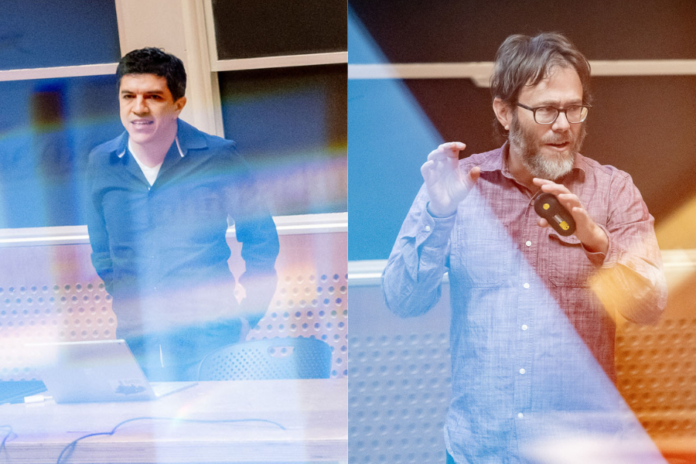The Ethics of Computing: A Class That Demands Technical and Philosophical Expertise
In a world where technology is rapidly advancing, the question of how to ensure that machines do what we want and only what we want is becoming increasingly urgent. This is the topic of discussion in Professor Armando Solar-Lezama’s class, "Ethics of Computing," where students explore the intersection of technology and ethics.
The Golden Age of Generative AI
As the world becomes more dependent on AI, it is crucial to consider the potential consequences of creating machines that can think and act on their own. Solar-Lezama, a Distinguished Professor of Computing at MIT, emphasizes that this struggle is as old as humankind itself. He retells the Greek myth of King Midas, who was granted the power to turn anything he touched into solid gold, but ultimately turned his loved ones into gilded stone. "Be careful what you ask for, because it might be granted in ways you don’t expect," he cautions his students.
The History of Programming
Solar-Lezama takes his students on a journey through the history of programming, from the 1970s Pygmalion machine to the late 1990s computer software that took teams of engineers years to program. He highlights the limitations of these processes, which left no room for spontaneous discovery, play, and innovation.
The Risks of Building Modern Machines
Solar-Lezama warns about the risks of building modern machines that don’t always respect a programmer’s cues or red lines, and that are equally capable of exacting harm as saving lives. He emphasizes the importance of considering the potential consequences of creating machines that can think and act on their own.
A Class That Demands Technical and Philosophical Expertise
The "Ethics of Computing" class is a unique opportunity for students to explore the intersection of technology and ethics. The course is designed to provide students with the technical and philosophical expertise necessary to navigate the complex issues surrounding the development and use of AI.
The Instructors’ Approach
The instructors, Solar-Lezama and MIT philosopher Brad Skow, take a collaborative approach to teaching the course. They alternate lecture days, with Solar-Lezama focusing on the technical aspects of AI and Skow examining the broader implications of today’s ethical issues. The class is designed to be dynamic and responsive, with the instructors attending each other’s lectures and adjusting their follow-up class sessions in response.
Conclusion
The "Ethics of Computing" class is a thought-provoking and timely course that encourages students to think deeply about the potential consequences of creating machines that can think and act on their own. By exploring the intersection of technology and ethics, students gain a unique perspective on the challenges and opportunities presented by AI. As Solar-Lezama notes, "Maybe five years from now, everybody will laugh at how people were worried about the existential risk of AI. But one of the themes I see running through this class is learning to approach these debates beyond media discourse and getting to the bottom of thinking rigorously about these issues."

